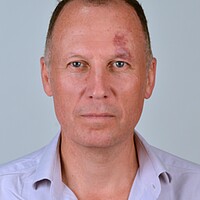The Vatican's new normal: being home to an ex-pope
Loading...
| Vatican City
When Pope Benedict XVI left the Vatican exactly a year ago today, clattering off into a perfect Roman sunset in a shining white Italian air force helicopter, he created a scenario that had not been witnessed for centuries – the co-existence of two living popes.
Pope Benedict was the first pontiff to resign for six centuries and his decision – known only to a tiny coterie of trusted advisers before it was made public – pitched the Holy See into uncharted waters.
How would the retired pope be addressed? Where would he live? Would he prove a distraction to his replacement, Pope Francis, who was subsequently elected at a conclave of cardinals inside the Sistine Chapel on March 13? Might he even provide a focus for dissent towards the new leader of the world’s 1.2 billion Roman Catholics, and be seen as a sort of shadow pope?
There were even dark warnings of a schism in the church, something last seen in the Middle Ages.
A year on, most of these anxieties have come to nothing, and the existence of two popes within the imposing stone walls that surround the tiny sovereign nation seems, if not entirely normal, then at least no longer outlandish.
“I was among those who foresaw potential problems with 'two popes' – one retired, one active – but experience has proved me wrong on that. The church has not suffered divided allegiances,” John Thavis, a veteran Vatican analyst and the author of several books on the Holy See, including "The Vatican Diaries," wrote in a recent blog.
'Exactly what he said he would do'
Benedict, 86, now known as pope emeritus, lives in a former convent within the walls of the Vatican where he spends his days studying, praying, looking after his pet cats, and playing Beethoven and Mozart on a baby grand piano that he brought with him when he moved out of the much grander Apostolic Palace.
The former convent, known as “Mater Ecclesiae,” lies just a few hundred yards across from Casa Santa Marta, the Vatican residence where Pope Francis lives.
The white-haired pope emeritus made a surprise appearance in public last Saturday when he attended a lavish ceremony inside St. Peter’s Basilica, in which 19 new cardinals from around the world were anointed by Pope Francis.
The two men, both dressed in white, embraced.
There seems to be genuine regard and affection between them. Pope Francis has described having his predecessor living just across the Vatican gardens as like having a favorite “grandfather” living at home.
One of the new cardinals appointed by Pope Francis, Britain’s Archbishop Vincent Nichols, told The Christian Science Monitor that having Benedict turn up at the occasional public ceremony was rare but not exceptional.
The Archbishop of Westminster said he thought Benedict’s public appearances would remain occasional but that he would probably take part in a ceremony in April in which two former popes, John Paul II and John XXIII, will be made saints.
“He's doing exactly what he said he would, which is devoting himself to praying for the church and living a life of prayerful seclusion,” the archbishop said during a press conference this week at the Venerable English College in Rome, a 650-year-old seminary for priests from England and Wales.
Questions remain
A year on, there remains intense speculation as to the reasons for Pope Benedict’s unprecedented resignation.
Was it because of the pedophile priest sex abuse scandals that had dogged his eight-year papacy? Or the scandal over his butler, who was caught stealing confidential Vatican documents which, after being leaked to the Italian media, revealed infighting, corruption, and poison at the heart of the Holy See?
When he announced his resignation last year, he said he was stepping down because he no longer had the "strength of mind and body" to be pontiff.
In an unusual move this week, he wrote a letter to La Stampa, an Italian daily newspaper, insisting that the decision had been his and his alone and refuting any suggestion that he had come under pressure from disaffected cardinals within the Vatican.
The former pope also addressed an argument put forward recently by a prominent Catholic writer who suggested that he had not resigned of his own volition and that he therefore technically remained pope, meaning that the election of Pope Francis last March was invalid.
"There isn't the slightest doubt about the validity of my resignation from the Petrine ministry," the German former pope wrote. "The only condition for the validity is the full freedom of the decision. Speculation about its invalidity is simply absurd.”







